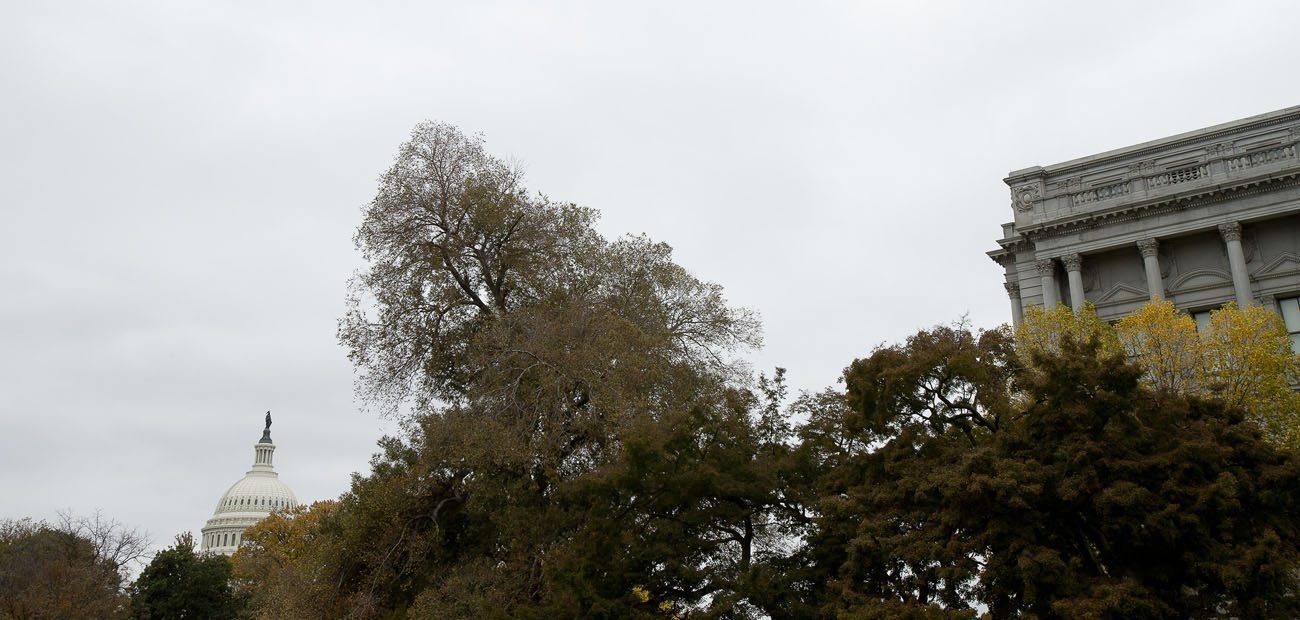WASHINGTON (CNS) — Rep. Chris Smith, the New Jersey Republican who co-chairs the Bipartisan Congressional Pro-Life Caucus, made another push Nov. 8 for passage of the Conscience Protection Act.
The measure amends the Public Health Service Act to allow lawsuits from health care providers who believe they have been discriminated against, or lost their jobs, because they refused to participate in abortions.
The House version is H.R. 644 and included in the appropriations package that won House passage in September. The Senate bill, S. 301, is identical to the House version.
[hotblock]
Supporters hope to see final adoption as part of the appropriations bill for the 2018 fiscal year. Smith, at a news conference at the U.S. Capitol, said President Donald Trump has promised to sign it.
He observed that while there are other conscience-protection statutes, “we’ve had eight years of absolute non-enforcement under the Obama administration.”
The new legislation has the backing of the U.S. Conference of Catholic Bishops, which, along with 32 other organizations, sent a letter in September to senators and representatives urging them to vote for it.
“Federal laws protecting conscientious objection to abortion have been approved for decades by Congresses and presidents of both parties,” the letter said. “Even many ‘pro-choice’ Americans realize that the logic of their position requires them to respect a choice not to be involved in abortion.
“Yet, with violations of federal conscience laws occurring in California, New York, Washington, Alaska, Illinois, and most recently Oregon, it is increasingly clear that the current laws offer far less protection in practice than in theory,” it said.
“Supporters and opponents of abortion alike should be able to agree on promoting the common good by protecting the right of conscience of all providers,” the letter added.
Jeanne Mancini, president of March for Life, also issued a statement of support. “What we are talking about here is the most basic of human protections and freedoms. It is un-American for someone to be forced to go against what they know in their conscience is wrong.”
Rep. Diane Black, R-Tennessee, who introduced the current House version of the act, called the legislation a “compassionate, reasonable and modest bill.”
[tower]
The Weldon Amendment, included in the annual appropriation for the Department of Health and Human Services since 2005, already allows health care providers as well as insurance plans to refuse to provide abortions, pay for them or refer women to abortion clinics.
The Conscience Protection Act is aimed at protecting individual physicians, nurses or other health care professionals who refuse to assist in abortions when asked to do so by their employers. According to the wording of the bill, it protects various entities, including applicants to or participants in training programs for the health professions who refuse to participate in an abortion.
The American Civil Liberties Union is among the opponents, saying the bill “would facilitate discrimination against women seeking abortion care while purporting to protect religious liberty.”
But Sen. James Lankford, R-Oklahoma, sponsor of the Senate version, said it is not about religious belief specifically. Instead, he said it was for “millions of Americans who believe (a child in the womb) is not just a ball of tissue.”
Also speaking were three nurses, Cathy DeCarlo, Fe Vinoya and Sandra Mendoza, who have been subject to coercion by their employers to participate in abortions.
Smith said it was “an honor and privilege to join these ‘nurses of conscience’ who believe that abortion kills children and harms women and stood up for their beliefs at the risk of great personal sacrifice and injury — loss of job, demotion, or other forms of retaliation.”
DeCarlo, who used to work at Mount Sinai Hospital in New York, said she had been assured in 2004 that she would “never have to compromise my conscience.” In 2009, she was compelled to participate in an abortion of a 22-week-old fetus, “then I had to account for all the pieces. I never thought in America I’d be forced to violate my conscience in this way.”
Fe Vinoya, who formerly worked at University Hospital in Newark, New Jersey, added, “I became a nurse to help people, not to do harm.”
Mendoza, who used to work at the Winnebago County Health Department in Rockford, Illinois, said: “I hope we can all agree that no doctor or nurse should be forced out of employment on account of their faith and commitment to protecting life.”
Representatives from several pro-life organizations were at the news conference, including Mancini; Greg Schleppenbach, associate director of the USCCB’s Secretariat of Pro-Life Activities; Kellie Fiedorek, legal counsel with Alliance Defending Freedom; Andrew Guernsey, legislative assistant for government affairs at the Family Research Council; and Tim Saccoccia, public policy coordinator with the Knights of Columbus Office of Public Policy.
PREVIOUS: Young immigrants at Dreamers Symposium offer heartfelt plea for support
NEXT: You say you’re ‘spiritual but not religious’: What does that mean?




Share this story